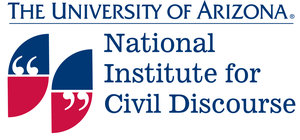
- Experience
- Toolkit
Engaging Differences – Key Principles and Best Practices
National Institute for Civil DiscourseEngaging in conversations across the divide opens doors to finding common ground. This piece conveys several key principles and best practices that are critical to connecting across divides, including: Empathy instead of vitriol; Listening for Understanding instead of hearing to overpower; and Humility instead of all-knowing.
